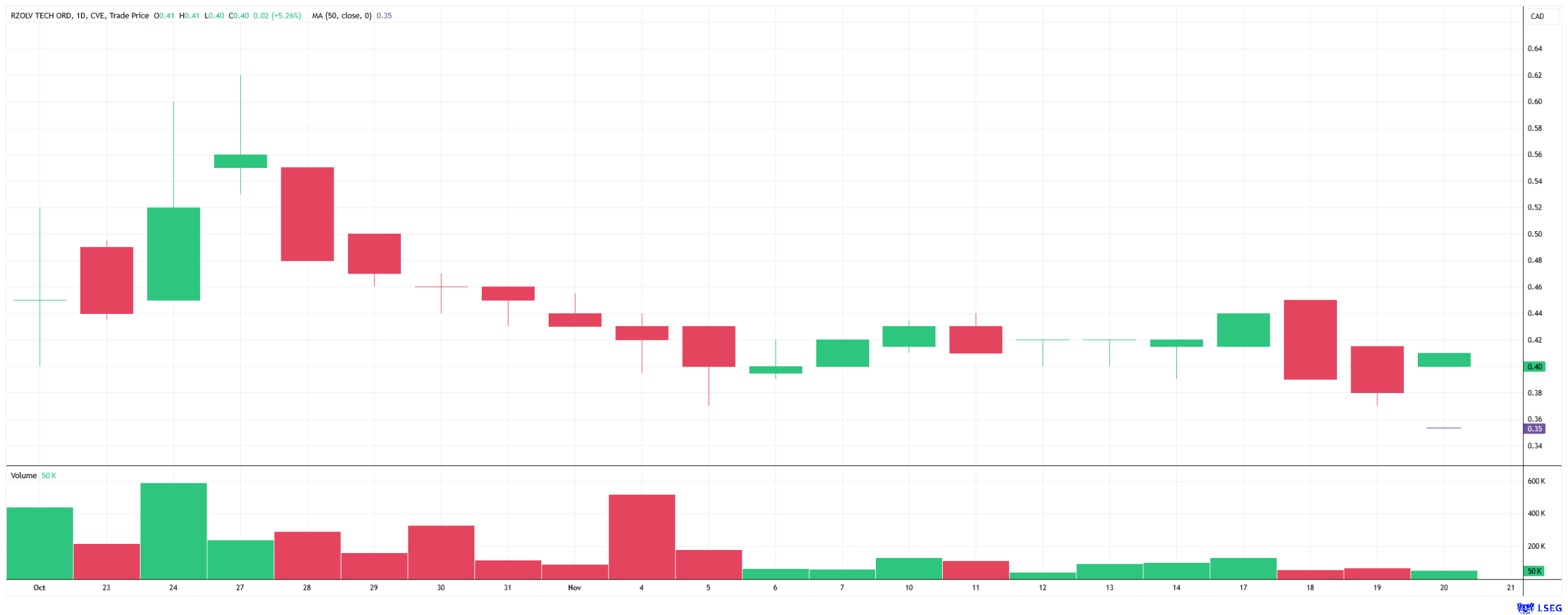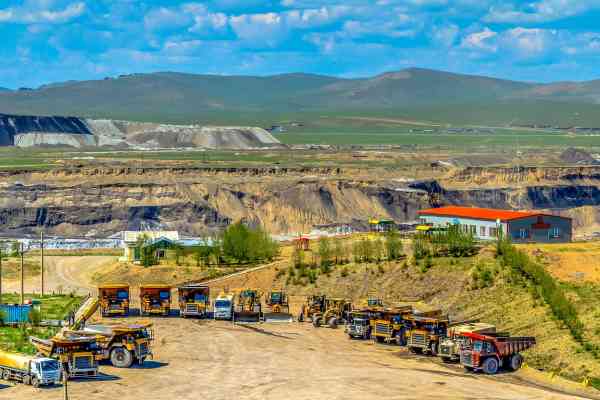November 21st, 2025 | 07:00 CET
Revolutionary technology could transform gold mining: RZOLV Technologies, Newmont, Ecolab
Do you know what makes gold mining so dirty? Cyanide! The chemical is still used in 90% of mining projects today. However, the highly toxic chemical is increasingly coming under scrutiny from environmental authorities and critical investors. Stricter regulations and local bans, such as those in Costa Rica, Argentina, and several EU countries, are delaying or halting projects altogether. At the same time, gold prices are reaching record highs, which also increases the financial scope for alternatives. Industry experts such as Duane Nelson, CEO of RZOLV Technologies, point out that around USD 2 billion is spent annually on cyanide in the gold sector. RZOLV aims to take advantage of this and has developed a clean alternative to replace cyanide. Gold miners who want to position themselves more cleanly are likely to be interested.
time to read: 3 minutes
|
Author:
Nico Popp
ISIN:
RZOLV TECHNOLOGIES INC | CA76091C1032 , NEWMONT CORP. DL 1_60 | US6516391066 , ECOLAB INC. DL 1 | US2788651006
Table of contents:

"[...] Both the geology and the infrastructure around the project make for a very attractive cost structure. We expect to be able to produce at 50% of the current gold price. [...]" Bill Guy, Chairman, Theta Gold Mines Limited
Author
Nico Popp
At home in Southern Germany, the passionate stock exchange expert has been accompanying the capital markets for about twenty years. With a soft spot for smaller companies, he is constantly on the lookout for exciting investment stories.
Tag cloud
Shares cloud
Clean cyanide alternative shows promising performance
Canadian start-up RZOLV Technologies has developed a patented, water-based leaching chemical that offers a non-toxic alternative to conventional cyanide. Independent tests have demonstrated gold recoveries exceeding 90% on selected mineral concentrates, showcasing performance comparable to traditional cyanide methods. The costs are in the same range as for cyanide applications. At the same time, the chemical is environmentally friendly and designed for reagent regeneration, which greatly reduces toxic residues commonly associated with gold extraction. RZOLV emphasizes that its technology is a clean and fast method for extracting gold and critical minerals from ores, concentrates, and legacy mining residues.
RZOLV conducts pilot test with 100 tons of rock – Key data is positive
The Canadians are currently working on their market entry. After years of development, RZOLV completed a reverse takeover in the fall of 2025 and has been listed on the TSX Venture Exchange since. The technology company is also listed in Germany. Even before going public, RZOLV raised CAD 2.85 million to finance, among other things, a 100-ton pilot test in Arizona. The Company plans to use this to demonstrate what it is capable of under realistic conditions. Results could be available in the coming weeks. RZOLV intends to sell or license its chemicals to mine operators and points to low investment costs in this context – its own chemical works perfectly in existing leaching plants. To prevent the Company from being outdone by competitors or imitators, it has international patent protection.
If the pilot test yields positive results, RZOLV is likely to attract the attention of several industries. An equivalent alternative to cyanide could solve many ESG problems for commodity companies. Companies in the chemical industry might also find the technology attractive and could emerge as potential buyers of RZOLV. One such company is Ecolab, which is a leading global provider of water, hygiene, and energy technologies for industry and also has an extensive mining business. Under the Nalco Water brand, Ecolab sells chemicals and solutions for treatment, leaching, and recycling in mines. This also includes projects in precious metal mining.
Ecolab and Newmont are open to innovation and fully committed to ESG
From an ESG perspective, Ecolab is firmly committed to sustainability and has dedicated itself to reducing its environmental footprint. The Company continuously invests in innovations such as digitalized water treatment and alternative chemicals, and cooperates with governments to reduce industrial waste. In gold mining, Ecolab could easily bring a solution such as RZOLV's to market due to its many existing contacts. To date, Ecolab has no publicly known strategy to develop alternatives to cyanide itself.
However, mining companies such as Newmont could also find RZOLV's solution appealing. If the cyanide alternative is really as effective as expected, it would make a significant difference in the hands of a giant like Newmont. The world's leading gold producer achieved an annual surplus of around USD 1.83 billion in the third quarter of 2025 and an operating cash flow before working capital of a whopping USD 2.6 billion – so there is financial scope for a groundbreaking technology that gives Newmont an advantage over its competitors. Since Newmont has long been committed to ESG and has shown interest in alternatives to cyanide in the past, there could be a spark between RZOLV and the mining giant. Successful results from practical tests are likely to be a prerequisite.
RZOLV comes at the right time – Waiting for results of the pilot test
The search for alternatives to cyanide opens up a vast market: gold producers spend over USD 2 billion annually on cyanide. If RZOLV secures just a small share of this, the Company should quickly move into the black. At the same time, a US executive order issued this summer actively calls for the recovery of metals from mining sludge and contaminated sites, which means that the administrative and regulatory environment is also favorable for RZOLV. Applications such as those from RZOLV could be approved more quickly or even receive subsidies. Successful test runs are crucial. The RZOLV team is confident in its technology. The pilot test with 100 tons of coarse rock could also open the eyes of other experts in the industry. The Company is still largely unknown – this could be an opportunity for speculative investors with foresight.

Conflict of interest
Pursuant to §85 of the German Securities Trading Act (WpHG), we point out that Apaton Finance GmbH as well as partners, authors or employees of Apaton Finance GmbH (hereinafter referred to as "Relevant Persons") may hold shares or other financial instruments of the aforementioned companies in the future or may bet on rising or falling prices and thus a conflict of interest may arise in the future. The Relevant Persons reserve the right to buy or sell shares or other financial instruments of the Company at any time (hereinafter each a "Transaction"). Transactions may, under certain circumstances, influence the respective price of the shares or other financial instruments of the Company.
In addition, Apaton Finance GmbH is active in the context of the preparation and publication of the reporting in paid contractual relationships.
For this reason, there is a concrete conflict of interest.
The above information on existing conflicts of interest applies to all types and forms of publication used by Apaton Finance GmbH for publications on companies.
Risk notice
Apaton Finance GmbH offers editors, agencies and companies the opportunity to publish commentaries, interviews, summaries, news and the like on news.financial. These contents are exclusively for the information of the readers and do not represent any call to action or recommendations, neither explicitly nor implicitly they are to be understood as an assurance of possible price developments. The contents do not replace individual expert investment advice and do not constitute an offer to sell the discussed share(s) or other financial instruments, nor an invitation to buy or sell such.
The content is expressly not a financial analysis, but a journalistic or advertising text. Readers or users who make investment decisions or carry out transactions on the basis of the information provided here do so entirely at their own risk. No contractual relationship is established between Apaton Finance GmbH and its readers or the users of its offers, as our information only refers to the company and not to the investment decision of the reader or user.
The acquisition of financial instruments involves high risks, which can lead to the total loss of the invested capital. The information published by Apaton Finance GmbH and its authors is based on careful research. Nevertheless, no liability is assumed for financial losses or a content-related guarantee for the topicality, correctness, appropriateness and completeness of the content provided here. Please also note our Terms of use.




